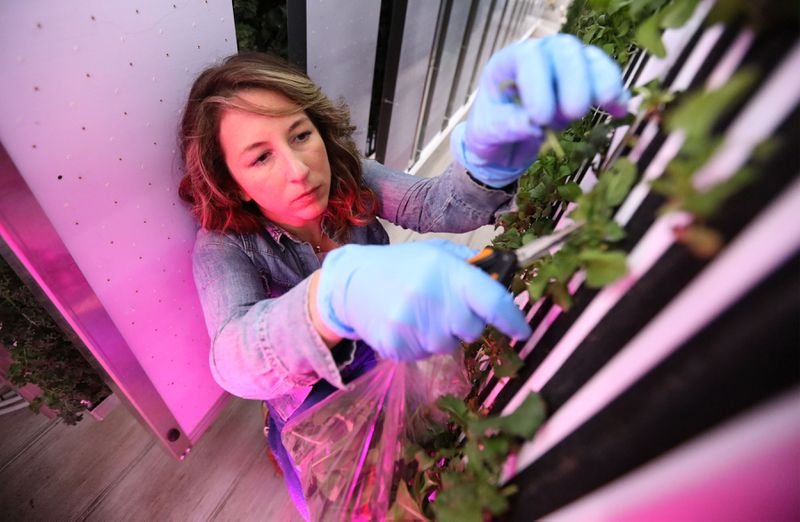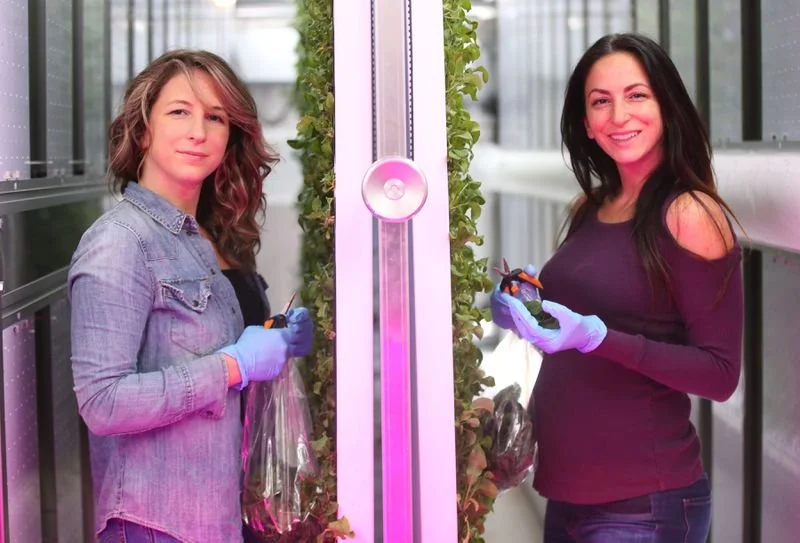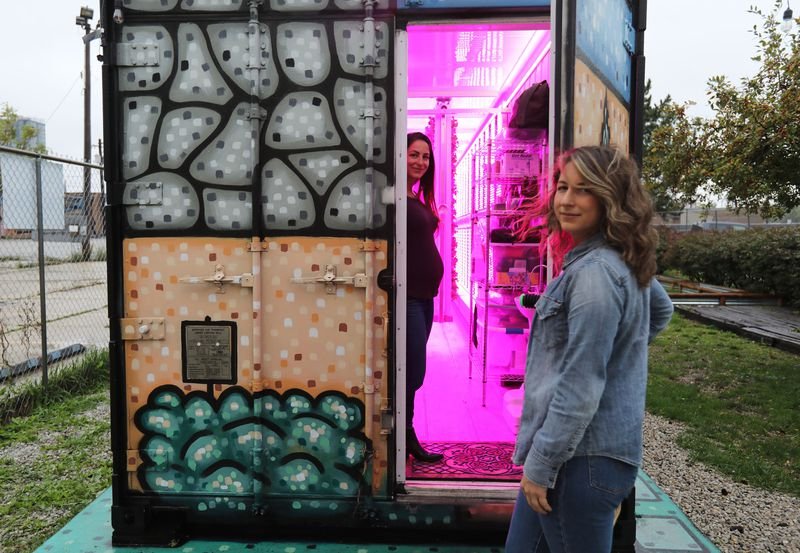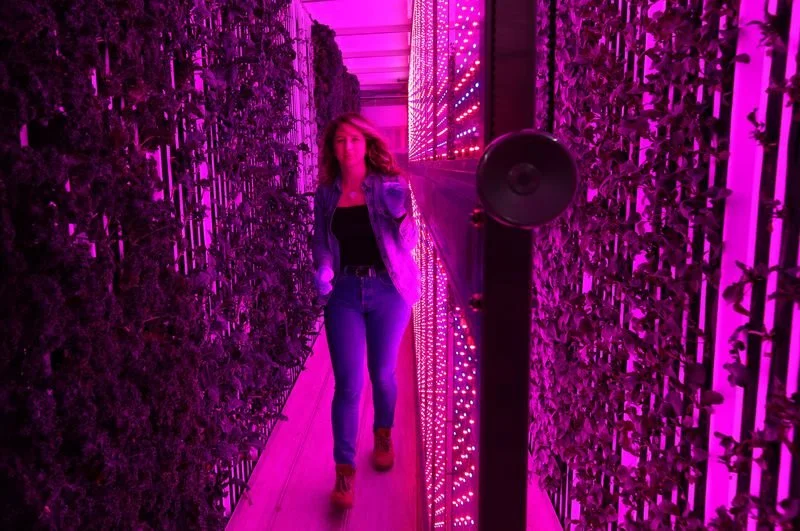Lt. Gov. Juliana Stratton Aims To Make Illinois’ Agriculture Industry More Equitable And Reduce Food Insecurity. She’s Not Alone In Her Pursuit
CHICAGO TRIBUNE
FEB 01, 2022
Equity in farming is on Lt. Gov. Juliana Stratton’s agenda this year.
Her office announced the Advancing Ag Equity & Addressing Food Insecurity initiative Tuesday. The plan, called #AgConnectsUsAll, will have her and members of her staff traveling the state this month to conduct listening sessions with stakeholders in the industry to gather information to formulate a long-term strategy toward elevating equity in the field.
In March, her office will focus on food insecurity. By April, Stratton will focus her energies on creating a podcast to further the conversations about farming and food. While Stratton will be sharing her travels on social media along the way, she hopes the efforts will lead to shaping policy for the future.
Having visited rural and urban growers in Peoria, Chicago and East St. Louis so far, Stratton said she’s excited to do more to increase accessibility, including finding more educational and career opportunities for marginalized communities so the agriculture field reflects Illinois’ diversity.
Freight to Plate co-founder Mary Kathryn Scala harvests Swiss rainbow chard inside an 8-by 40-foot shipping container on Oct. 29, 2021. Freight to Plate is a women-owned business pioneering in urban agriculture. (Antonio Perez/Chicago Tribune)
According to Stratton, since the beginning of the pandemic, food insecurity has doubled in Illinois, tripled in households with children and increased 60% among seniors. And Black farmers, who once owned 14% of the land in this country, now own about 1.3%. Black farmers in the United State have lost more than 12 million acres of farmland over the past century — a result of systemic racism, biased government policy and social or business practices that have denied Blacks equitable access, according to agricultural advocates.
“As chair of the Governor’s Rural Affairs Council, I have visited communities, farms, markets and small businesses centered in ag and have seen firsthand how they add tremendous value to our daily lives,” Stratton said. “I felt it was important to stand with them and support them.”
Support has come by way of Gov. J.B. Pritzker’s administration giving $5 million in business grants to agricultural businesses affected by the pandemic, while expanding Supplemental Nutrition Assistance Program (SNAP) food assistance to provide over 1 million children with over $1 billion in food relief through the Pandemic Electronic Benefit Transfer program, a temporary food benefit program for children who receive free or reduced-price school meals.
Stratton comes to agriculture through familial roots. After emancipation, Stratton’s great-great-grandfather was given a plot of land that was farmed and cultivated into a community called Stephensville, Mississippi, a welcoming place for former slaves. The community remains. Stratton visited to honor its legacy and pay it forward by advocating for justice, equity and opportunity.
“From rural to urban to suburban — ag is at the center. It’s our state’s largest industry,” Stratton said. “All communities throughout our state deserve to have access to the bounty that Illinois produces. Our efforts through these sessions, and our greater strategy for equity, will take steps in making Illinois agriculture as vibrant and diverse as our state.”
Anton Seals Jr., executive director of Grow Greater Englewood, says Stratton’s work will help ease the over-reliance on an outdated food system that is too cumbersome and too big to respond to the needs of the people, especially those who are the most vulnerable.
“Along with Rep. Sonya Harper’s new legislation and Mayor (Lori) Lightfoot’s Food Equity council, it should reflect the levers across governing bodies coordinating something that will continue to advocate in our favor, so it becomes easier for smaller Black farmers and food entrepreneurs across the system to thrive in Illinois,” Seals said. “The health of Black constituents and their economic opportunity is one that we must shift to for Illinois to thrive. With the rise of new technologies, the food system is shifting before our eyes.”
Hydroponics is one technological avenue that is growing the way farming is done.
Sisters Jacqueline Scala and Mary Kathryn Scala co-founded Freight to Plate, a hydroponic farm that operates inside a 40-by 8-foot trailer container by Freight Farms, in the Fulton Market area during the pandemic. The Homestead, as it is called, is decorative on the outside and computer regulated on the inside. With their woman-owned urban agriculture business, the Scala sisters are marrying their small footprint with feeding the community the leafy greens the site produces.
Freight to Plate co-founders and sisters Mary Kathryn Scala, left, and Jacqueline Scala harvest arugula and Swiss rainbow chard inside a 320-square-foot shipping container in the Fulton Market area. (Antonio Perez/Chicago Tribune)
“There’s a scarcity of food ... but this type of farming is a completely different way of doing it,” Jacqueline Scala said. “This is 320 square feet, but we’re yielding as much as 2 ½ acres worth of farmland in this shipping container.”
“And because we’re soilless, we don’t have to battle soil depletion, which in a lot of our urban neighborhoods they are trying to do with community gardens and community farms,” Mary Kathryn Scala said. “We’re giving our plants the exact nutrient combination that they need to be as nutrient-dense, healthy as possible, from seed to full harvest.”
When their farm is full, up to 12,000 plants are growing inside movable panels that are irrigated on a timer. In the fall, before their first winter harvest, they were growing sweet Thai basil, lemon balm, rosemary, kale, arugula, watercress, and Swiss chard. From a tray of peat moss cells, seeds germinate in three days and moved into the vertical walls of the container to be watered and grown. The cells plug right into the panels and the water system will flow through and keep feeding the roots, which in turn grow the leafy greens and lettuces that mature in six weeks.
Sisters Jacqueline Scala, left, and Mary Kathryn Scala, at their Freight to Plate shipping container, located in the Fulton Market area on Oct. 29, 2021. The farm works on two ingredients: nutrient-dense water and energy efficient LED lights. (Antonio Perez/Chicago Tribune)
Energy efficient LED light panels serve as the light and heat source for the farm, with lights on for the majority of the day. A 110-gallon water tank keeps the nutrient-dense water circulating automatically on a timer. An HVAC system keeps the temperature somewhere between 60 and 72 degrees consistently. The sisters have been reaching out to area chefs to share samples of their harvest, hosting taste-testing events when feasible and partnering with wellness sites to share their organic food since September. They already have community supported agriculture customers and they service several local restaurants.
“The cool thing about our footprint is we can be part of the neighborhood; we can be part of the community,” Mary Kathryn Scala said. “We’re not this secondary thought somewhere else. We’re in it with everybody. It’s important work. I believe in feeding people.”
Mary Kathryn Scala inside the Freight to Plate shipping container in Fulton Market. Through hydroponic farming methods and cutting edge technology, Freight to Plate offers hyper-local, year-round produce. (Antonio Perez/Chicago Tribune)
The sisters want to continue building relationships with the Chicago community as they experiment with what to grow on the walls of their self-sustaining compact farm in the heart of the city. They hope they can be an example of urban farming from which other communities can learn.
“It’s hopeful, it’s empowerment and growing your own food as well, which I think is a huge thing for solving food insecurity in general,” Jacqueline Scala said. “I think empowering the community to grow it themselves is a huge way to solve for that. And this is a great way because the seed to harvest factor is a lot quicker. It makes them want to stay more engaged.”
Original article featured here
Darcel Rockett - Chicago Tribune
Darcel Rockett is a writer and curious soul — the latter informing the former. Her curious nature has led her to write for news organizations in London, the Virgin Islands, Los Angeles and Phoenix. Currently, she writes lifestyle pieces for the Chicago Tribune, where she’s served as a digital editor and features reporter for a decade.






